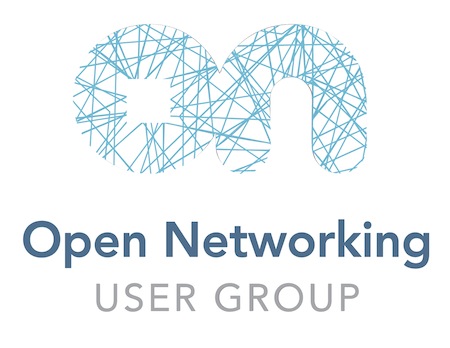Vapor IO Takes Data Center Disaggregation a Step Further
 Everything else is getting opened up — how about rack management?
Everything else is getting opened up — how about rack management?
ONUG Spring 2015
I’ll continue to update this throughout the next two days. Feel free to issue a pull request if you’re also here at the conference and want to add to this post.

General
Location: Open Networking User Group (ONUG) at Columbia University
ONUG currently has 6 working groups:
- NSV
- SD-WAN
- Virtual Network Overlays
- Common Management tools across network, compute, and storage
- Network State Collection, correlation, and analytics
- Traffic Monitoring and Visibility
It is interesting and awesome to see that half of the working groups are all about Day 2 operations and management of networks. This is exactly what’s needed in the industry.
Sessions
Creating Business Value with Cloud Infrastructure
Speaker: Adrian Cockcroft
- Developers don’t need any of that referring to NSV/NFV.
- 2009 developed the Cloudicorn, took knowledge gained to Battery
- Docker wasn’t on anyone’s roadmap for 2014. It’s on everyone’s roadmap for 2015
- 2014 was the year that Enterpises finally embraced cloud and DevOps
- Optimizing from IT cost to delivery and speed - Nordstrom - ended up yielding lower costs
- Product IT reports into the business
- Director is the highest Corp IT title
- Immutable microservice deployments scales
- If your QA team is saying there are too many bugs in a release, Continue reading
SDN: Integration over Manipulation
I’d like to briefly express a sentiment that I pondered after listening to another one of Ivan’s great podcasts, specifically regarding the true value of a software-defined network approach. The statement was made that ACLs are terrible representations of business policy. This is not inaccurate, but the fact remains that ACLs are currently the de facto representation of business policy on a network device. The “network team” gets a request from an application team to “fix the firewall”, and the policy that is applied to enable that application typically results in an ACL change.SDN: Integration over Manipulation
I’d like to briefly express a sentiment that I pondered after listening to another one of Ivan’s great podcasts, specifically regarding the true value of a software-defined network approach. The statement was made that ACLs are terrible representations of business policy. This is not inaccurate, but the fact remains that ACLs are currently the de facto representation of business policy on a network device. The “network team” gets a request from an application team to “fix the firewall”, and the policy that is applied to enable that application typically results in an ACL change.F5 APM, SRX and DTLS NAT Timeout
I have been having issues using the F5 APM client behind a Juniper SRX-110 using hide NAT. I believe I’ve tracked it down to the default timeout settings used for UDP services. Here’s what I did to resolve it.
Constant Connection Timeouts
The laptop client was behind the SRX-110, using hide NAT. The initial client connection would work, and things would look good for a while. The the client would stop receiving packets. Traffic graphs would show a little bit of outbound traffic, and nothing inbound. Eventually, the client might decide it needed to reconnect. But usually, it would sit there for a few minutes doing nothing. Then I would force a disconnect, which would take a while, and then reconnect. Exceedingly frustrating.
Connecting the client to a different network – e.g. using a phone hotspot – worked fine. No dropouts. Using a wired connection behind the SRX had the same issue. So clearly the problem was related to the SRX.
TLS & DTLS
I dug into the traffic flows to better understand what was going on. This SSL VPN solution makes an initial TLS connection using TCP 443. It then switches over to DTLS using UDP 4433 for ongoing encrypted Continue reading
BGP Listen Range Command
Original content from Roger's CCIE Blog Tracking the journey towards getting the ultimate Cisco Certification. The Routing & Switching Lab Exam
BGP Dynamic Neighbors are a way to bring up BGP neighbors without specifically defining the neighbors remote IP address. Using the BGP Listen Range command you specify a range of IP addresses typically on your Hub site (maybe in a DMVPN environment) that you trust to become BGP neigbors with you. When a TCP request... [Read More]
Post taken from CCIE Blog
Original post BGP Listen Range Command
BGP PIC – Prefix Independent Convergence
BGP PIC ( Prefix Independent Convergence ) is a BGP Fast reroute mechanism which can provides sub second convergence even for the 500K internet prefixes by taking help of IGP convergence. BGP PIC uses hierarchical data plane in contrast to flat FIB design which is used by Cisco CEF and many legacy platforms. In a hierarchical… Read More »
The post BGP PIC – Prefix Independent Convergence appeared first on Network Design and Architecture.